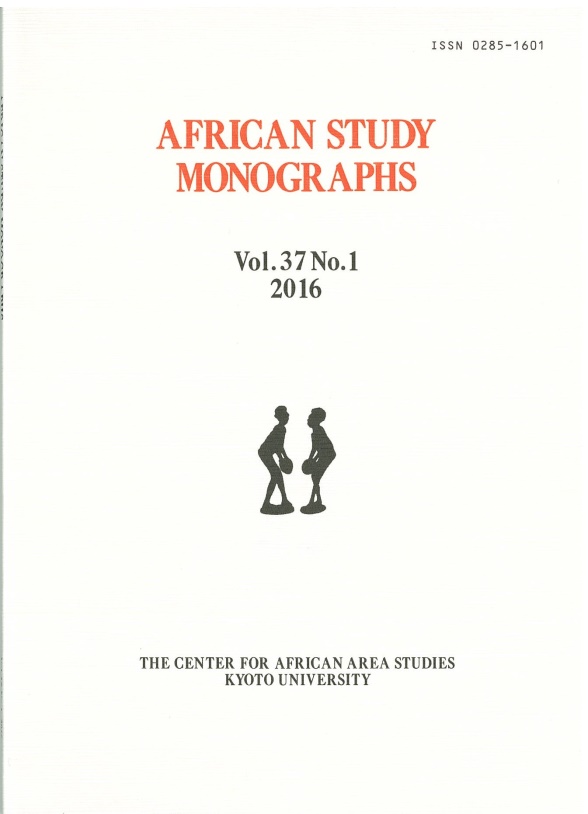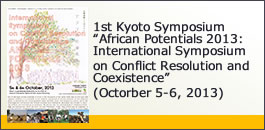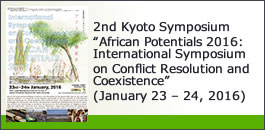“Overview: Why Social Cohesion in Kenya?”
Motoki Takahashi (Kobe University) & Othieno Nyanjom (Kenyan Institute for Public Policy Research and Analysis)
Since violence related to Kenya’s 2007 general elections drove the country to the brink of full-scale crisis into 2008, the pressing need for reinforcing social cohesion has been realized. Though it is certain that recent Kenyan conflicts were closely linked to cleavages along ethnic lines, the mere presence of ethnic differences cannot fully explain such conflicts and divisiveness. It is necessary to consider other proximate factors, such as changes in human relations, extensive socio-economic inequalities, inequitable allocation of public resources, exclusionary governance, and the usurpation of the roles of civil society and communities. On the other hand, remarkable changes are ongoing in Kenya. ICT has most extensively penetrated in Sub-Saharan Africa. Mobile phones are used even in remote areas and refugee camps. Innovations including the introduction of a mobile banking have been rapidly permeating. Digital technology is being adopted by various aspects of public administration. It is hoped that the spread of digital technology, though depending on the contexts, will help mitigate divisiveness by facilitating inter-group communications, promoting market transactions, and enabling more equitable delivery of public goods. The panel participants, both from Japan and Kenya, jointly aim to lay the groundwork for empirical analyses of issues related to Social Cohesion.
“Improving Public Service Delivery in Kenya: Enabling Performance Contracting through ICT”
Othieno Nyanjom (Kenyan Institute for Public Policy Research and Analysis)
Nyanjom’s presentation will explore basic public service provision, an essential prerequisite for achieving social equity and thereby Social Cohesion in Kenya. The presentation will focus on performance contracts and the adoption of digital technology to facilitate the delivery of public service among various public sector reform measures in view of their effectiveness in improvements in socio-economic welfare of the people. Kenya has espoused performance contracting in all areas of government service delivery, with officers committing to measurable time-bound outputs. However, econometric modeling of determinants of social sector outcomes – such as school performance or increased immunization uptake – often emphasize factors out of the control of the officer in charge. Performance contracts are therefore often couched in terms that cannot really gauge the officer’s contribution. The presentation then will discuss the extent to which the adoption of digital technology in Kenya can cost-effectively improve welfare outcomes, using estimates found in the global literature of that technology’s impacts, in a way that it also enables service providers to sign meaningful and realistic performance contracts and become effectively accountable to the society. The presentation will finally examine whether ongoing domestic public service reform measures have contributed to reinforcing Kenya’s Social Cohesion.
“Mobile Phone in Turkana, Kenya: Deepening Individualization or Reformulating Complexity of Human Relations?”
Ichiyo Habuchi (Hirosaki University)
Habuchi’s presentation will examine the impacts on human relations of the spread of digital technology across the country. Kenya’s most rapidly expanding mobile phone services are now sweeping the so-called peripheries of the country. In Turkana, Northwest Kenya, one of the most distant areas from the capital, Nairobi, most people pursue a pastoral way of life without modern conveniences in very hot semi-arid areas.
They raise livestock such as cattle or goats, and do not require literacy for their daily lives, with many people unable to read Swahili or English. Though they have no TVs, radios, or computers, many tribesmen carry mobile phones. The presentation will discuss mobile phone penetration in Turkana, taking an ethnographic approach. It will focus on how the Turkana use their mobile phones in their everyday lives. A popular idea characterizes mobile phone usage as tending to change from collective to personal, referring to Giddens’ or Beck’s concept of Individualization. This presentation, however, will describe the ways in which Kenyan mobile phone usage differs socially from the Western way, suggesting that it could co-exist with or be based on communal human relations, making the process of social transformation more complex.
“Digital Media, Market and Trust: the Socioeconomic Relationships between Somali Refugees and Host Communities in Kenya”
Naoki Naito (University of Tokushima)
The presentation is based on field work conducted in Dadaab, near the Somali border, known as the world’s largest refugee camp. It will examine the ways in which Somali refugees and their host communities interact with the use of mobile phones. The exclusionary political culture had provoked severe conflicts between Somalis and non-Somalis in Kenya. After the state collapse in Somalia in 1991, Somalis have sought refuge in this region, remaining for long periods of time and expanding refugee camps including Dadaab. The situation, compound with exclusionary political culture, has also escalated tension between Somali refugees and Kenyan Somali. On the other hand, the world’s first mobile banking service, called M-PESA was introduced in 2007.The MPESA service enabled Kenyan citizens and Somali refugees alike to safely transfer small amounts of money. This change prompted interactions between inside and outside the Dadaab camp. For example, various commodities are traded between the two using mobile phones and mobile banking services, based on trust. Despite persistent tension, a unique arena for coexistence facilitated by new commercial systems with digital communication has emerged. Through it, Somali refugees have attempted to reformulate livelihoods and thereby transcend marginalization caused by Kenya’s exclusionary political culture.
|


 Exploring African Potentials, Mila Special Issue
Exploring African Potentials, Mila Special Issue
